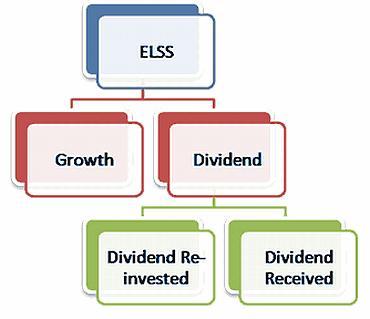
Today India has around 35 to 40 asset management companies (AMCs), which provide variety of mutual fund schemes to the investors. Investors are not aware of the risks associated with various schemes and in which kind of securities these schemes invest. Investors have a misconception that mutual funds invest only in equity markets and believe they are less risky as compared to direct equity investments.
In this article I will explain which kind of mutual fund scheme you should invest in by taking into account your financial goals and investment time horizon.
Equity diversified funds
Equity diversified schemes invest funds in shares of large-cap, mid-cap and small-cap companies and diversify the portfolio. Thus the performance of the fund depends on the performance of these companies in the portfolio and equity markets. There is high risk associated with investment in equity funds, but the high risk is followed by high returns in the long-term.
Investment in equity diversified funds is advisable (up to 90 per cent) for accumulating corpus for long-term financial goals such as retirement, child's education and child's marriage, etc. which have time horizon of more than nine years.
The best way for investing and accumulating corpus for your goals under equity-diversified schemes is by monthly investment through SIPs (systematic investment plans) or STPs (systematic transfer plan) from a liquid fund.
Apnapaisa is India's leading online market place for financial products such as loans, credit cards and insurance plans.

Equity linked savings schemes (ELSS) funds
ELSS fund is a kind of equity fund. Investment in these fund provide tax deduction under section 80 C upto Rs 1 lakh. It is not advisable to invest in these funds if you are not a taxpayer and do not require tax benefit u/s 80C because, these funds have a lock-in period of three years. You should invest in ELSS funds only as tax planning investment and not goal-based investment.
Balanced funds
Balanced funds invest 70 per cent to 80 per cent in equity and the balance 30 per cent - 20 per cent in debt instruments; the proportion of investment is rebalanced regularly depending on the performance of equity and debt.
Since certain proportion is invested in debt, the risk in balanced fund investment is less compared to equity-diversified schemes. The poor performance from equity when the market is bearish gets compensated to some extent with the fixed returns earned from the debt investment. You can invest in balanced funds for accumulating corpus for your medium term goals having a time-horizon of five years to nine years such as accumulating funds for down payment for buying a house, starting up new business or child's education, etc. It is preferable to invest in balanced funds via monthly SIPs.

MIP funds
MIP fund is just the converse of balanced funds; they invest 70 per cent to 80 per cent in debt instruments and the balanced 30 per cent to 20 per cent in equity.
The returns from MIP funds are relatively higher than debt/income funds when the markets are bullish since some equity portion is also attached to the fund. Investment in MIP fund is best suitable for accumulating corpus within five years for short-term financial goals like buying a car or for your sibling's marriage or even arranging down payment for buying a house etc.
Debt funds/FMPs
Debt funds invest in debt instruments like bonds, certificate of deposits (CDs), govt. securities and commercial paper (CPs), which are least risky and earn fixed rate of return.
Fixed maturity plans (FMPs) are debt funds having a fixed term of investment like 90 days, 366 days, etc. Investments in income fund is more profitable as compared to fixed deposits since they are tax efficient and thus earn better post-tax returns. Investment in debt funds is advisable for short-term financial goals like buying a car or going on a dream vacation or any other goal having time horizon of less than five years.

Liquid funds
Liquid funds are debt funds that invest only in money market instruments having maturity of less than one year like treasury bills, CPs, etc. Investment in liquid fund is suitable to park lumpsum money for contingency funding, since they are flexible and are expected to earn better returns than savings account. Lumpsum investment can be made in liquid funds for starting STP into equity diversified fund or balanced fund.
Gold funds
Gold funds invest in gold ETFs (exchange traded funds) thus returns from gold funds are relatively similar to gold ETF and physical gold.
A certain portion of investment (up to 10 per cent) should be allocated to gold funds for long-term financial goal like child's marriage or general wealth creation. Investment in gold funds is a better option than buying physical gold due to factors like easy liquidity, tax efficiency and no risk of holding physical gold.

Index funds
Index fund is a replica of equity market index Nifty or Sensex. These funds invest in same securities that are in these indices in the same proportion and try to replicate the price movement and earn similar returns.
The risk is very high, since 100 per cent investment is in equity securities. Investment in index funds is advisable for long-term financial goals particularly for those investors who don't have time to review their investment regularly.
This way you are well equipped to know which kind of mutual fund is appropriate for you and can help you achieving your financial goal. But the most important thing is that you should review your investments periodically and accordingly switch your investment to some other fund if your existing fund is under performing.